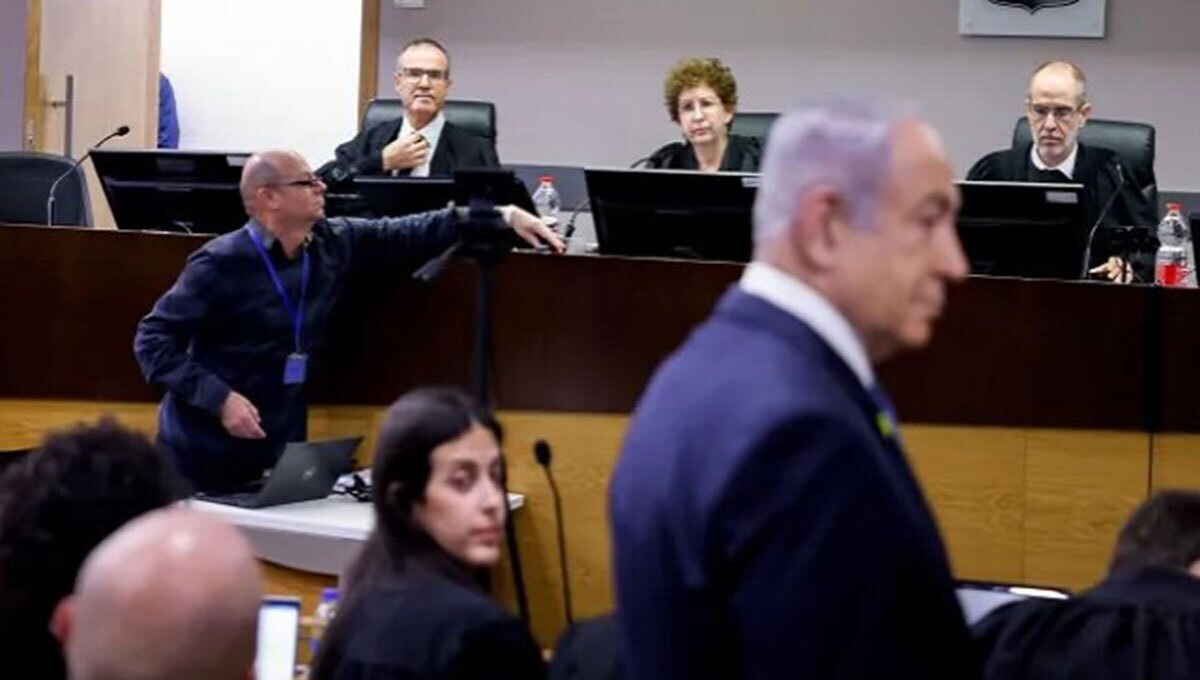Alwaght- As it was predicted, Netanyahu's warmongering in Gaza and Lebanon over the past 18 months not only has not improved the messy situation in the occupied territories, but also added to its challenges and these days the political crisis in Israel is mostly taking its toll on the prime minister. This situation pushed the Israeli PM to open an internal front after unsuccessful try through escaping forward by resuming war on Gaza. His new war is a full-scale one against independent state institutions.
The Israeli media described Netanyahu's recent actions as a violent and even bullying campaign against government institutions and their representatives, a move that is clearly linked to his ongoing corruption trial. For example, after months of pushing, he finally succeeded in dismissing Israel's Attorney General, Gali Bharavi-Miara. Before her dismissal, she had warned in a letter that Netanyahu's government intended to "place itself above the law, act without checks and balances, and make unilateral decisions even at the most sensitive times."
Netanyahu has been under investigation for several corruption cases (bribery, fraud, and abuse of power) since 2019. He is trying to avoid possible convictions by undermining the judicial system, especially the Supreme Court). His strategy is also to change the composition of the Judicial Appointments Committee to appoint judges loyal to him.
Another of Netanyahu’s main targets is Ronen Bar, the director of the Israeli Internal Security Agency (Shin Bet), whom Netanyahu has explicitly accused of having advance knowledge of the Hamas attack on October 7, 2023. The PM's office claimed in a statement: “This is a fact, not a conspiracy theory.” According to the claim, “at 4:30 am that day, it was clear to the Shin Bet chief that an attack on the Gaza Envelope towns was likely.”
However, the media and critics see the attempt to remove Bar as linked to the Shin Bet investigation into Netanyahu office's ties to the Qatari government, which allegedly included financial payments to advance Doha's interests, and which clearly show Netanyahu's personal interests.
Critics also accuse Netanyahu of blaming security officials (such as Shin Bet chief) instead of accepting responsibility for the intelligence and military defeat of Hamas on October 7, in order to deflect public pressure. Some senior military and Shin Bet officials have viewed Netanyahu's policies as a threat to national security.
Although Netanyahu initially voted to dismiss the Shin Bet chief in an unprecedented move in Israeli government history, the Supreme Court overturned the decision, forcing Netanyahu to back down and abandon the move for now.
This once again exposed Netanyahu’s conflict with the Israeli judiciary. Amid the judicial efforts to prosecute Netanyahu in various corruption cases, much of Netanyahu’s 2023 efforts were made trying to undermine the independence and influence of the Supreme Court. In July 2023, the cabinet passed a law to limit the Supreme Court’s powers, but the Supreme Court overturned it in January 2024 by an 8-7 vote. The law would have eliminated the Supreme Court’s tool for reviewing government decisions—by overturning “irrational” decisions.
Even in times of war, the Netanyahu government’s desire to limit the judiciary has not diminished. In January 2025, the government tried again with a revised proposal prepared by Justice Minister Yario Levin and Foreign Minister Gideon Sa’ar. The law, which passed the Knesset on March 27 after three readings, changes the composition of the Judicial Appointments Committee. Previously, the 9-member committee consisted of three judges, two independent lawyers, and four politicians (equal from the government and opposition), but now the lawyers will also be chosen by the government and opposition—a change that will take effect after the next election.
The law has led to increased political unrest in the occupied territories amid protests over the resumption of Gaza war and public calls to move forward with the prisoner swap with Hamas. More than 71,023 protests were registered against the plan. Despite its final approval by a vote of 67 to 1, it was only possible due to a boycott by the opposition. National Unity Party leader Benny Gantz wrote to Netanyahu urging him to abandon the plan. He reminded Netanyahu that Israeli society is “wounded and divided"—a situation that has not been seen since October 6, 2023.” He wrote, “59 of our compatriots are still in Hamas captivity, and our soldiers—from all political factions—are fighting on multiple fronts.”
Gantz’s warning was clear: Unilaterally passing laws by a parliamentary majority—without popular support—“will harm the ability to enact broad reforms, cause further polarization, and increase distrust in the legislative and executive branches.”
Before the final voting, Gantz called on Deputy Prime Minister Yariv Levin to abandon the plan. Channel 12 cited him as describing the law a "mistake." But Levin responded that the plan was a good compromise and more lenient than the previous proposal, which gave the government full control over judicial appointments. He claimed that the reforms were designed “to heal national divisions.”
But for Netanyahu, healing is something far-fetched. His authoritarian policies are a mix of demagoguery and survivalism. He is inclined to victimize all, from security to judicial officials, to maintain power. As opposition leader Yair Lapid said, "Netanyahu is ready to destroy the country to escape the prison."



























